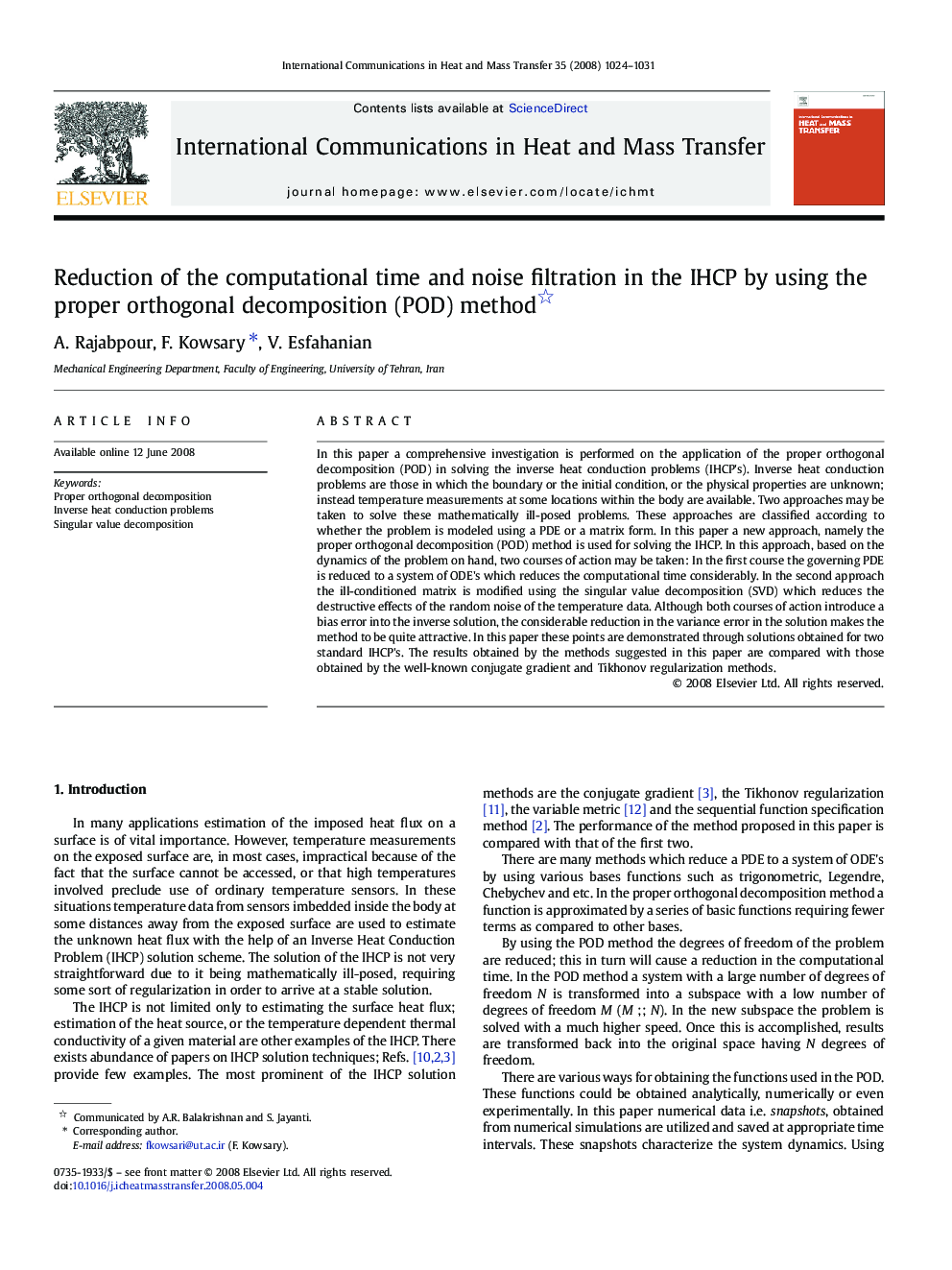| Article ID | Journal | Published Year | Pages | File Type |
|---|---|---|---|---|
| 654580 | International Communications in Heat and Mass Transfer | 2008 | 8 Pages |
Abstract
In this paper a comprehensive investigation is performed on the application of the proper orthogonal decomposition (POD) in solving the inverse heat conduction problems (IHCP's). Inverse heat conduction problems are those in which the boundary or the initial condition, or the physical properties are unknown; instead temperature measurements at some locations within the body are available. Two approaches may be taken to solve these mathematically ill-posed problems. These approaches are classified according to whether the problem is modeled using a PDE or a matrix form. In this paper a new approach, namely the proper orthogonal decomposition (POD) method is used for solving the IHCP. In this approach, based on the dynamics of the problem on hand, two courses of action may be taken: In the first course the governing PDE is reduced to a system of ODE's which reduces the computational time considerably. In the second approach the ill-conditioned matrix is modified using the singular value decomposition (SVD) which reduces the destructive effects of the random noise of the temperature data. Although both courses of action introduce a bias error into the inverse solution, the considerable reduction in the variance error in the solution makes the method to be quite attractive. In this paper these points are demonstrated through solutions obtained for two standard IHCP's. The results obtained by the methods suggested in this paper are compared with those obtained by the well-known conjugate gradient and Tikhonov regularization methods.
Keywords
Related Topics
Physical Sciences and Engineering
Chemical Engineering
Fluid Flow and Transfer Processes
Authors
A. Rajabpour, F. Kowsary, V. Esfahanian,
